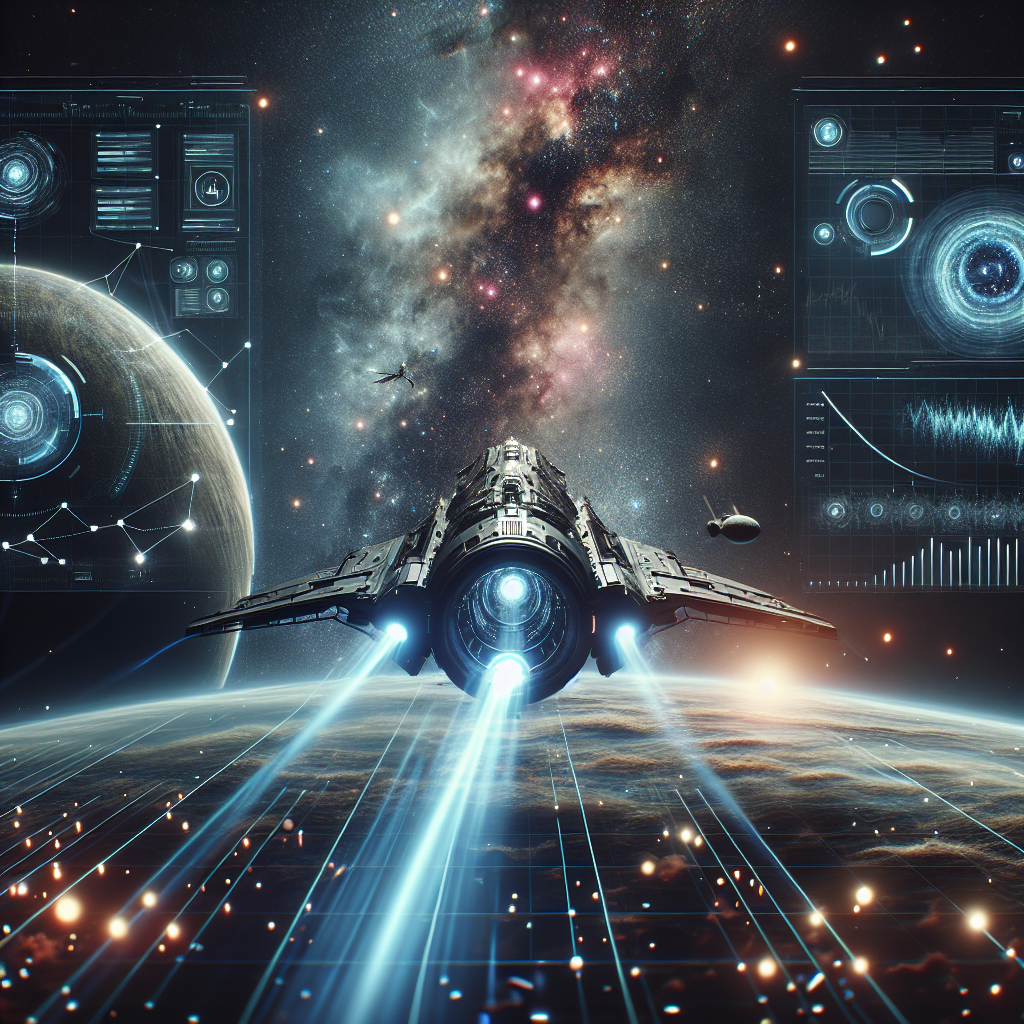The Future of AI Integration in Space Exploration
Artificial Intelligence (AI) has become an integral part of many industries, including space exploration. From autonomous rovers on Mars to predictive analytics for mission planning, AI is revolutionizing the way we explore the cosmos. As technology continues to advance, the future of AI integration in space exploration looks promising, with the potential to unlock new discoveries and push the boundaries of human exploration.
Current Applications of AI in Space Exploration
AI is already being used in various aspects of space exploration, from mission planning to data analysis. One of the most well-known examples of AI in space exploration is the Mars Rover missions. These robotic vehicles are equipped with AI algorithms that enable them to navigate the Martian terrain, analyze rocks and soil samples, and send back valuable data to scientists on Earth.
AI is also being used to analyze vast amounts of data collected by telescopes and satellites in space. For example, AI algorithms are being used to sift through images of the night sky to identify new celestial objects, such as exoplanets or asteroids. This type of data analysis would be nearly impossible for human astronomers to do manually, given the sheer volume of data being collected.
Another application of AI in space exploration is in predictive analytics. AI algorithms can analyze historical data from previous missions to predict the outcomes of future missions, helping to optimize mission planning and resource allocation. This can lead to more efficient and successful space missions, ultimately saving time and money.
The Future of AI Integration in Space Exploration
As technology continues to advance, the future of AI integration in space exploration looks bright. One area where AI is expected to play a significant role is in the development of autonomous spacecraft. These spacecraft would be able to navigate and make decisions on their own, without human intervention, allowing for more efficient and cost-effective missions.
AI is also expected to play a key role in the development of advanced robotics for space exploration. Robots equipped with AI algorithms could be used to explore distant planets or moons, collect samples, and even build infrastructure for future human missions. These robots could also be used to perform tasks that are too dangerous or difficult for humans to do, such as repairing spacecraft or conducting experiments in harsh environments.
In addition, AI is expected to revolutionize the way we analyze and interpret data from space missions. Advanced AI algorithms could be used to quickly and accurately process large amounts of data, leading to new discoveries and insights about the cosmos. AI could also be used to develop new models and simulations of the universe, helping scientists to better understand the mysteries of space.
FAQs
Q: How is AI used in space exploration?
A: AI is used in various aspects of space exploration, including mission planning, data analysis, and autonomous spacecraft navigation. AI algorithms are used to analyze data collected by telescopes and satellites, navigate robotic rovers on other planets, and predict the outcomes of future missions.
Q: What are the benefits of AI in space exploration?
A: AI can help to make space missions more efficient, cost-effective, and successful. By using AI algorithms to analyze data and make decisions, space agencies can optimize mission planning, resource allocation, and data analysis, leading to new discoveries and insights about the cosmos.
Q: What are some future applications of AI in space exploration?
A: Some future applications of AI in space exploration include the development of autonomous spacecraft, advanced robotics for planetary exploration, and new models and simulations of the universe. AI is expected to play a key role in the future of space exploration, leading to new discoveries and pushing the boundaries of human exploration.
In conclusion, the future of AI integration in space exploration looks promising, with the potential to revolutionize the way we explore the cosmos. By using AI algorithms to analyze data, navigate spacecraft, and predict outcomes, space agencies can optimize mission planning, resource allocation, and data analysis, leading to new discoveries and insights about the universe. As technology continues to advance, the possibilities for AI in space exploration are endless, opening up new frontiers for human exploration and discovery.

